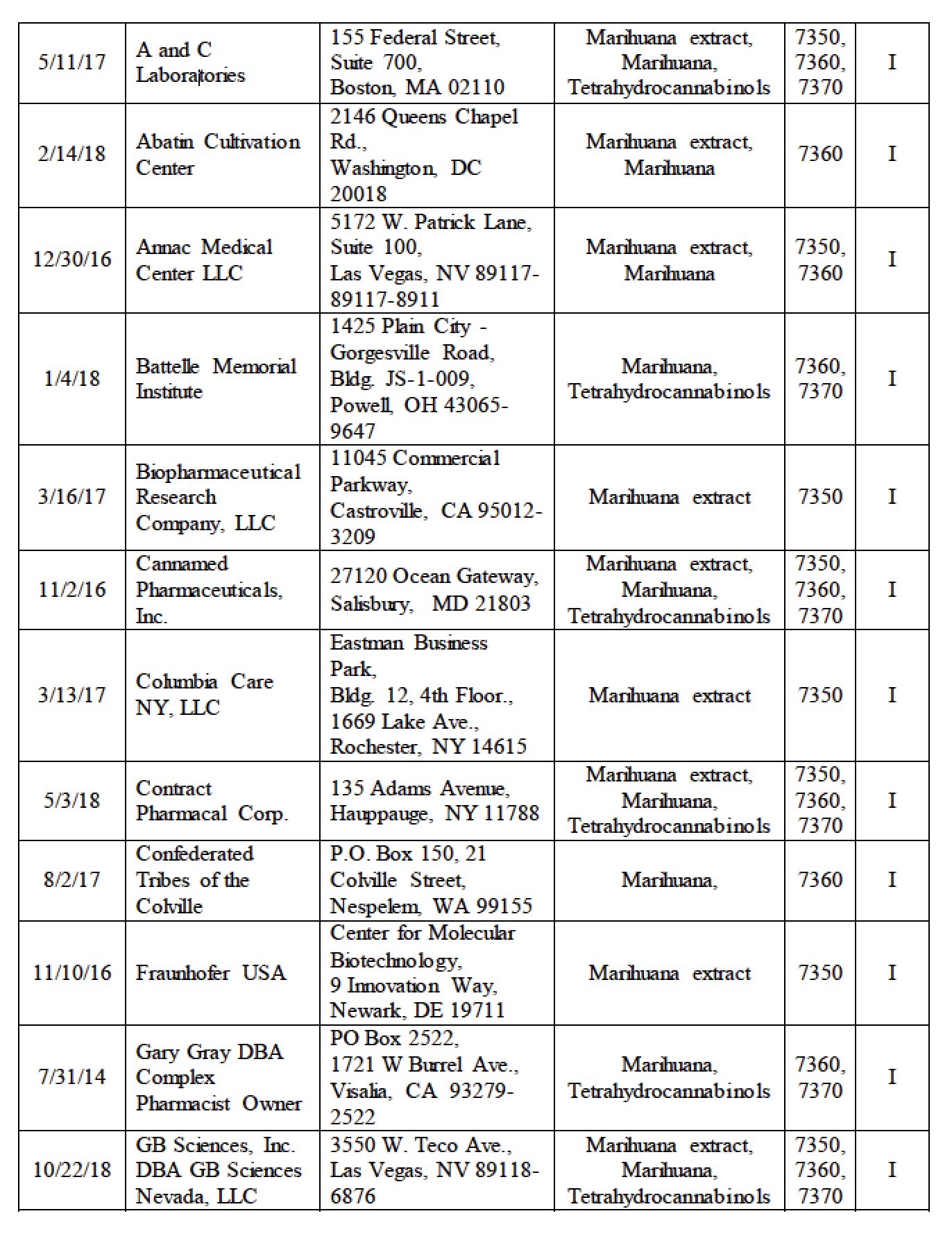By Fred Gardner September 1, 2019 The DEA’s refusal to authorize cannabis production to supply researchers is an essential mechanism of prohibition. Listed below are the 33 applicants seeking approval to produce cannabis for clinical research. Each got a letter from DEA last week advising that something would happen soon. Dr. Sue Sisley’s response to the DEA is posted here. Her need to be polite is understandable, and her patience is awesome, but…
It’s outrageous. The DEA’s endless stalling violates the federal statute that authorizes them to evaluate entities applying to “manufacture marijuana to supply researchers.” The relevant subsection states, “DEA is obligated to register only the number of bulk manufacturers of a given Schedule I or II controlled substance that is necessary to produce an adequate and uninterrupted supply of these substances under adequately competitive conditions for legitimate medical, scientific, research, and industrial purposes.” Italics added.
ElSohly Laboratories, Inc., in Oxford, Mississippi, is the only federally licensed cannabis manufacturer in the US and has been for decades. DEA has never met its obligation to create “adequately competitive conditions.” Maybe they will correct this little boo-boo in the period ahead by choosing a few of the 33 applicants. The Administration’s animosity towards California could rule out UC Davis… UMass Amherst Botany Professor Lyle Craker is eminently qualified, but they don’t seem partial to Massachusetts, either. I hope I’m wrong… Visalia pharmacist Gary Gray, a card-carrying member of the Society of Cannabis Clinicians, was first to apply for DEA approval (back in 2014) but is the longest of longshots.
The DEA’s whole approval process for cannabis manufacturers is based on the insane notion that the herb is as dangerous as plutonium. There is no reason why, if would-be manufacturers are inspected by competent federal agents and deemed capable of growing and processing a consistent product in sufficient quantity to meet investigators’ needs, they should not be allowed to proceed. DEA’s ongoing refusal to authorize cannabis production for research is an essential mechanism of prohibition.








